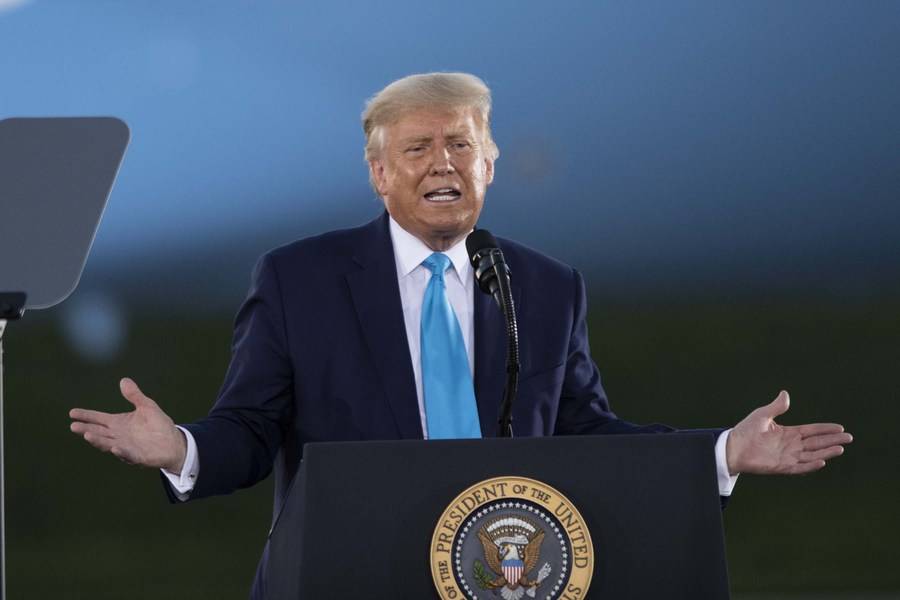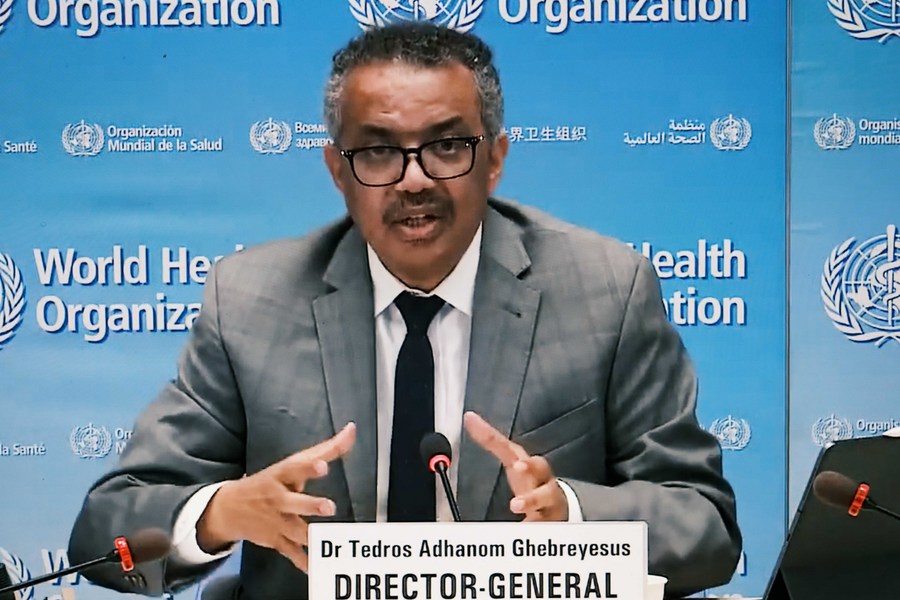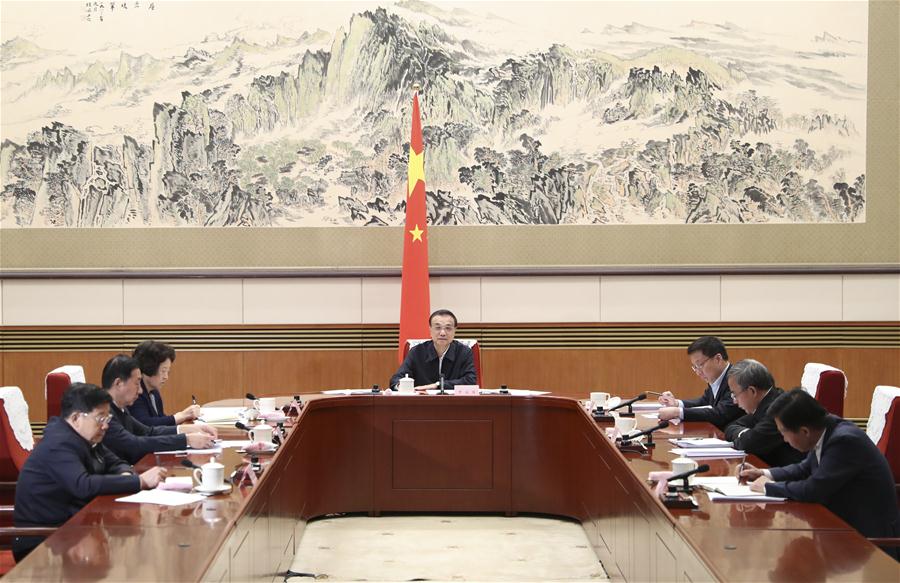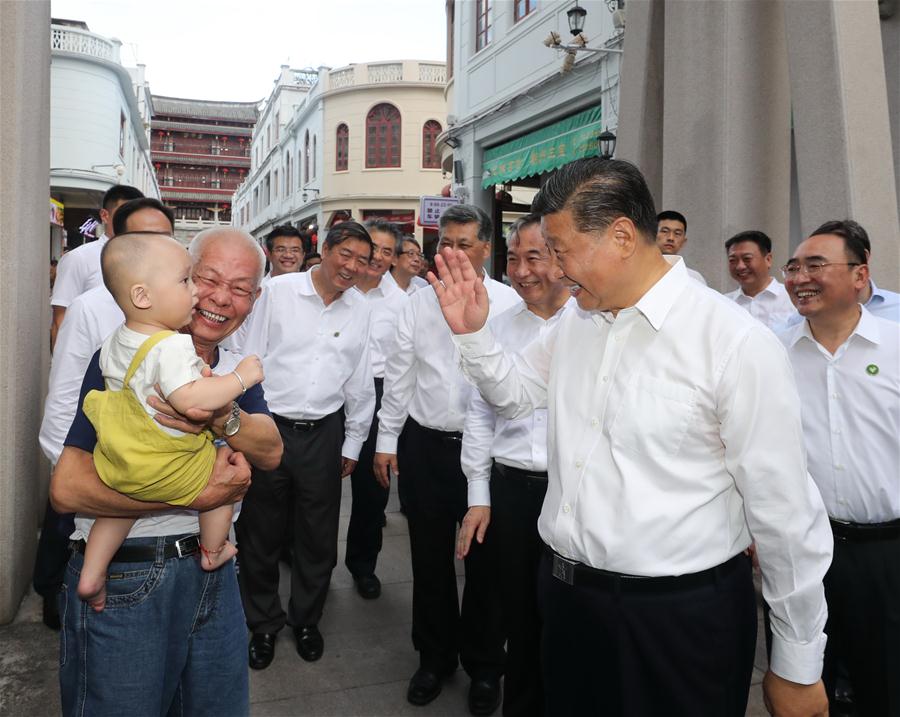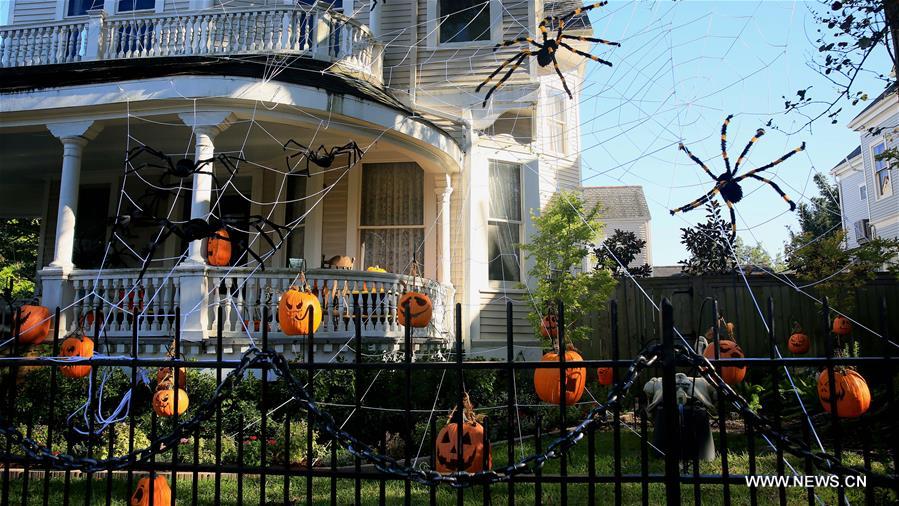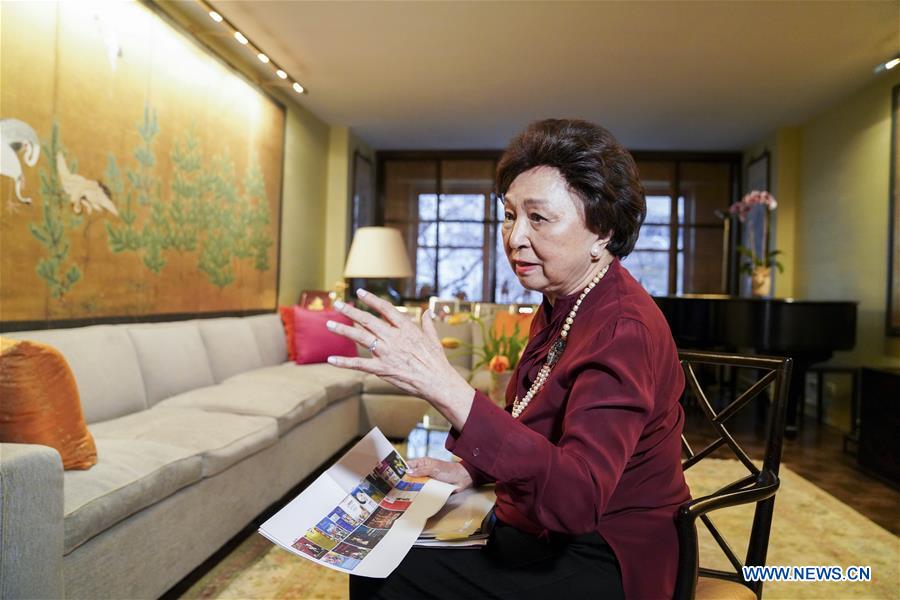
Retired Chinese American entrepreneur Shirley Young speaks during an interview at her apartment in New York, the United States, March 6, 2020. When it comes to building cultural bridges between the United States and China through music and art, retired Chinese American entrepreneur Shirley Young's passionate energy is so appealing that it seems she is not aged. (Xinhua/Wang Ying)
WASHINGTON, Oct. 12 -- When it comes to building cultural bridges between the United States and China through music and art, retired Chinese American entrepreneur Shirley Young's passionate energy is so appealing that it seems she is not aged.
HUMAN CONNECTIONS LAST
Young, who was Corporate Vice President of General Motors Corp from 1988 to 1999, has been honored by the Chamber Music Society (CMS) of Lincoln Center at its 50th anniversary celebrations for her help in building a CMS presence in China in the last five years. She was the first Chinese American to receive the award.
"They (CMS) said actually we want to help develop long-term chamber music in China, this is a whole new field and China can develop it. I said, well, that's a good goal," said Young when recalling how she got involved with the CMS project, in an interview with Xinhua.
Before that, she has been involved with many of the Lincoln Center organizations. A board member of the New York Philharmonic, she was behind many of the symphony orchestra's gala concerts celebrating Chinese New Year. She is also on the Juilliard Advisory Council for the Juilliard Tianjin efforts.
"My interest always is something long-term. What I want to spend my time on is not individual projects, but something which we use culture and connection, particularly between young people and through the human connection of the arts, to help people understand each other better between China and the United States," said Young, a former founding-Chair of the Committee of 100, a national Chinese-American leadership resource.
In addition to her China market experience as GM vice president, Young learned from her childhood the importance of building connections between countries through people, as her father Clarence Kuangson Young was a Chinese diplomat in the Philippines during the Second World War.
"It is the human connection that makes people trust each other, understand each other, and respect each other's interests. So that's why I decided to focus more on what I call long-term fundamental relations, which is with younger people," said Young, who founded the US-China Cultural Institute in 2000.
"I think when we look at politics and all the conflicts today, in my view, in twenty years I don't think we'll remember them. But I think these connections that people make on a human basis, connections between young people, connections through understanding the culture and the arts of the other side, will last," she said.
YOUTH ARE FUTURE
Young provided financial support during the COVID-19 pandemic to a dozen young Chinese artists under her US-China Cultural Institute when performances were canceled in the United States and Europe.
Over the years, she has offered assistance to young artists, including pianists Lang Lang and Zhang Haochen, dancer Huang Doudou.
"They're our future, and they are the best representatives. When I'm gone and when you're gone, they will continue on. And they really represent, I believe, the best of what China has to offer. So, they are best, probably even better than the diplomats, in the sense of connecting with people," she said, sharing Chinese dancer Huang Doudou's trip to Colorado.
"I brought Huang Doudou to Colorado with his dance group once. They never saw anybody from China before and they love them even today, fifteen/twenty years later, they say, 'Could you bring another group like that?' because they really enjoyed them," she said. "It was a great experience for both sides and they won't forget that."
In 2002, Young facilitated famous violinist Itzhak Perlman to take his music program for teenagers to China and that trip turned out to be a PBS special called Perlman in Shanghai.
Under the program, a group of about 25 students and 10 teachers from the United States went to China and played with about the same number of Chinese peers.
Before they went, the Americans thought the Chinese might be very stiff, probably very serious, or sort of boring. And the Chinese said the Americans could be very wild, probably interesting, according to Young.
"But they come together. They're playing frisbee, they're all the same, and they're all very good musicians. And so, it was a great experience. One of the things that they actually helped to introduce was chamber music," Young said.
Arnaud Sussmann, who was on that China trip at the age of 18, is now an outstanding musician and he played at the CMS celebration gala honoring Young and others.
"It's nice to see something like that happen," Young said.

